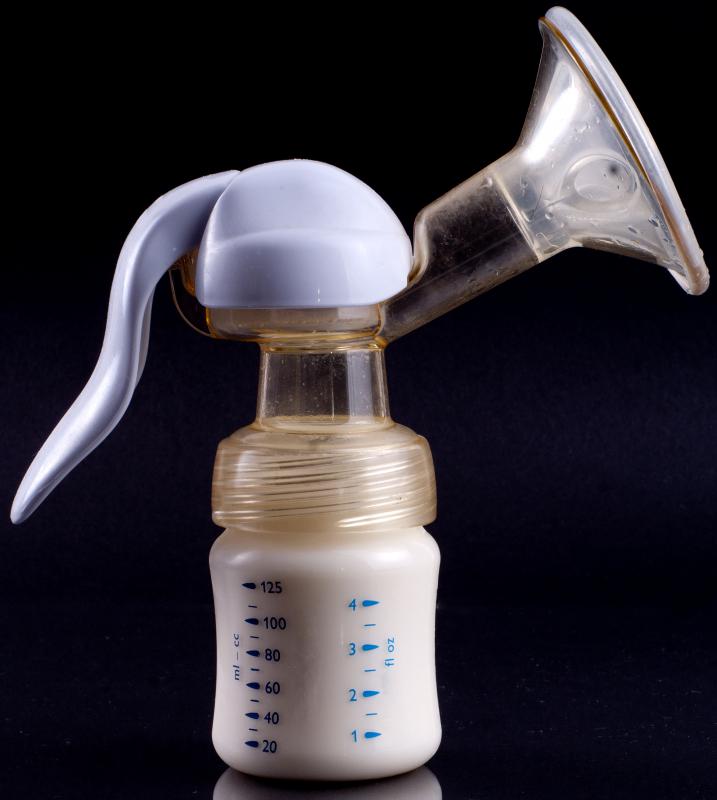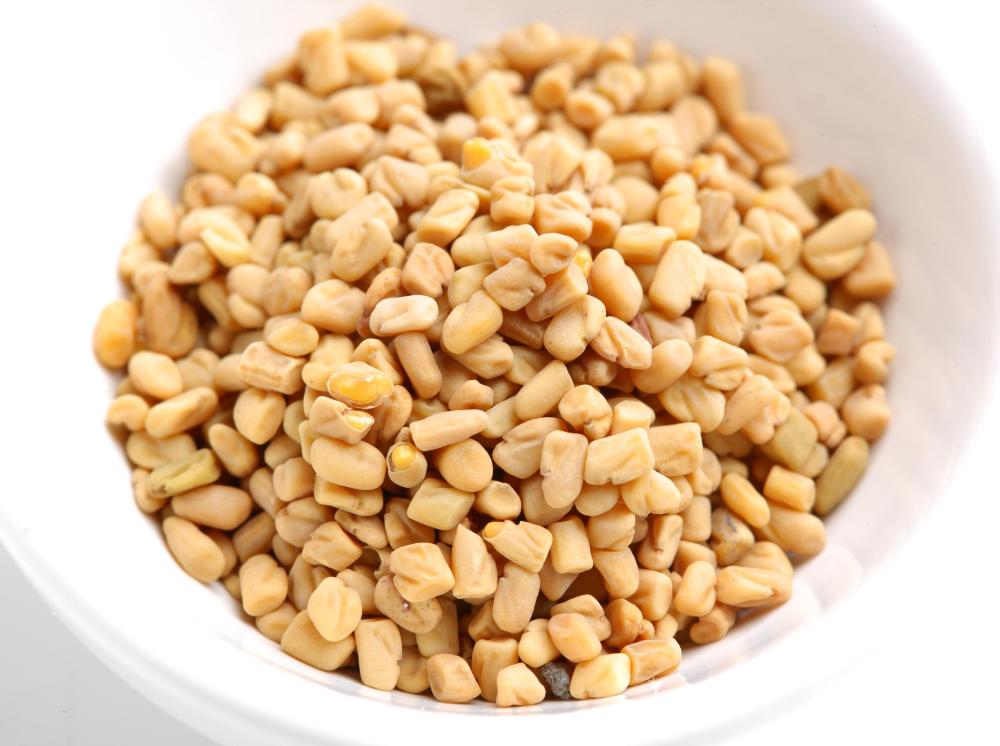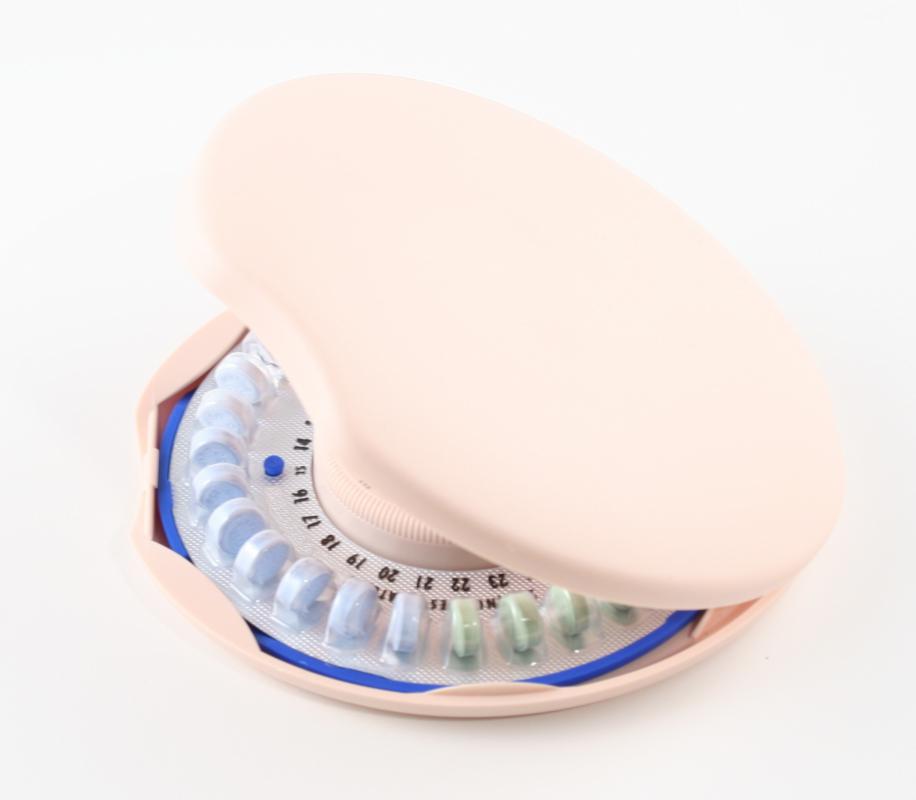At TheHealthBoard, we're committed to delivering accurate, trustworthy information. Our expert-authored content is rigorously fact-checked and sourced from credible authorities. Discover how we uphold the highest standards in providing you with reliable knowledge.
How Can I Induce Lactation?
Many people are unaware that it is actually relatively easy to induce lactation, even if you are not pregnant. People induce lactation for a number of reasons, including to breastfeed adopted infants, to breastfeed children born extremely prematurely, and simply if the body’s natural lactation doesn’t kick in.
There are a few different ways to induce lactation, some of which use traditional methods which have been used for thousands of years, and others of which use modern techniques, such as hormonal therapy, to induce lactation. Both have their pros and cons, and deciding which method to induce lactation by is something only the new mother can decide.

For thousands of years women have induced lactation in order to feed adopted children, or the children of other mothers who for whatever reason could not feed their own children. The term wet nurse is often used to describe a woman who looks after another woman’s child, and also breastfeeds them. Although often a wet nurse was a woman who had recently given birth herself, and so was already lactating, some wet nurses would induce lactation to breastfeed a child.

During a pregnancy, a woman’s body undergoes many hormonal changes. A number of these hormones, most notably progesterone, estrogen, and prolactin, all increase fairly drastically. One result of this hormonal increase is the swelling of the breasts, and an increase in the actual size of the breasts’ ducts. After giving birth, both the estrogen and progesterone hormones begin to decrease, while the prolactin continues to increase. This new imbalance causes natural lactation.

The generation of prolactin can be stimulated without pregnancy, however, simply by stimulating the nipples regularly. The most common way to induce lactation traditionally was simply to allow an infant to nurse. Although milk would not initially be generated, over time lactation will begin. Since infants can become very frustrated if they are continually trying to feed and there is no milk, many people begin to induce lactation using a breast pump initially. After the generation of milk has begun, then they will switch over to the infant.

The drug domperidone is also sometimes used as a chemical method to induce lactation. Domperidone stops dopamine from being produced as readily, and dopamine in turn prevents the production of prolactin. So taking domperidone increases the amount of prolactin produced, which in turn can induce lactation. Some people undergo an even more intense chemical process, by strategically using birth control pills to fool the body into thinking it is pregnant. Although this may be effective, there is the very real danger of side-effects, and a doctor should be consulted before attempting anything using pharmaceuticals to try to induce lactation.
Some herbs are also recommended to help increase the volume and flow of milk. Blessed thistle, fenugreek, and red raspberry leaf are all thought to help with milk production, although no extensive trials have been done to prove this clinically.

At its most basic, the principle of inducing lactation is simple: if there is a demand for milk, milk will be supplied. In fact, there are even cases of some men lactating after taking drugs that increase the levels of prolactin in the body, and there is some evidence that extended nipple stimulation in men.
What Are the Side Effects of Inducing Lactation?
Lactation-inducing drugs such as Domperidone successfully trigger milk production by activating a complex interaction between lactogen, estrogen, and progesterone. However, like most medications, the lactation-inducing drugs may trigger some side effects in mothers who take them.
These side effects rarely occur and are not severe since they disappear after a while when they surface.
In most cases, women may only experience sore nipples due to the increased amount of milk in their breasts caused by the hormone therapy inducing lactation. Nonetheless, in some cases, they may experience other side effects of the treatment, such as mild headaches that go away when their doses are reduced, dry mouth, and cramps in the abdominal area.
The side effects are reactions to the hormonal changes triggered by the lactation therapies.
There are no reported side effects of lactation induction to the baby consuming the produced milk. The milk is as authentic as naturally produced milk as it contains similar nutrients. While small doses of the lactation-inducing medication may find their way into the milk, it is not enough to affect the child or trigger any adverse effects.
What Factors Can Inhibit Lactation?
Most mothers start lactating as a natural response to giving birth. As the placenta is delivered, they experience hormonal changes that induce milk production and physiological changes that favor breastfeeding. In most cases, the breasts become sensitive, tough, and warm due to these changes.
However, in some instances, new mothers may fail to lactate, thus necessitating induction of the process. Various factors interfere with breastmilk production, ranging from physiological issues to lifestyle choices.
If you experience problems lactating, you should understand these factors to take appropriate steps to induce breast milk production. Some factors that may inhibit lactation and reduce or delay breast milk production include:
Physiological and Psychological Conditions
Health, your body's condition, and your state of mind tremendously affect breast milk production. Untreated medical conditions, exhaustion, and stress may inhibit lactation since the body may not have enough energy to focus on milk production. Other physiological conditions such as obesity and hormonal imbalance may also inhibit lactation.
Diet
What you ingest has a direct effect on breast milk production. Meals with excessive herbs and spices are linked to lactation inhibition. Similarly, you may experience reduced breast milk production if you do not drink enough fluids during the day.
Medication
Some prescription drugs are known to inhibit milk production. For instance, lactation suppressing medicines and birth control pills may interfere with your hormonal balance and curb breast milk production. Therefore, always consult a physician before taking any prescription drugs while breastfeeding.
Lifestyle Choices
Some lifestyle choices you make during pregnancy and after childbirth may inhibit lactation. Typically, indulgences such as caffeine consumption, smoking cigarettes, and drinking alcohol may lead to hormonal imbalances and physiological changes that inhibit lactation.
If you experience problems lactating, consult your health practitioner to ascertain the cause and make the necessary adjustments.
How To Boost Milk Production
Apart from inducing lactation, new mothers can boost milk production in various ways. If you are experiencing reduced milk production, here are a few steps to take and ensure your infant is appropriately fed.
- Breastfeed constantly: Breast milk production works on the concept of supply and demand. Therefore, milk production depends on the frequency of breastfeeding. Ensure you don’t skip a breastfeeding session to boost your milk production.
- Use prescription drugs cautiously: Some medications have components that interfere with hormonal balance and inhibit milk production. Therefore, consult your doctor before taking any prescription drug when breastfeeding.
- Quit drinking and smoking: Alcohol and nicotine intake decreases milk production. Therefore, you can boost lactation tremendously by avoiding the substances.
What Diet Should I Take During Lactation?
Watching your diet is essential during lactation since it determines the quantity and quality of milk produced. What you eat determines the nutrients your baby intakes, which generally affects their health and growth. New mothers should know about breastfeeding nutrition.
The main focus of lactating mothers’ diets should be foods that boost milk production. Your diet should comprise protein-rich foods. Animal proteins such as lean meat and seafood and plant proteins such as lentils, peas, and beans are excellent sources of these needed nutrients to increase milk production. It is also essential to take a glass of water regularly and after each breastfeeding session to maintain milk production.
Similarly, you should boost your calorie intake to ensure you have enough energy for milk production. You can get the extra calories from whole foods such as whole-grain pasta, cheese, nuts, and full-fat yogurt.
You should also ensure that your baby gets all the necessary nutrients by incorporating vitamins into your diet. Take fruits and vegetables in every meal. You may also supplement your intake by taking multivitamins and mineral supplements. These nutrients produce quality breastmilk to build your infant's immune system.
AS FEATURED ON:
AS FEATURED ON:















Discussion Comments
I want to do ANR but I can’t get a milk supply in. Any suggestions?
There are sites online that are helpful in learning more about inducing lactation without pregnancy and has video clips on stimulation techniques.
I'm just starting to try to bring on lactation. I am stimulating my nipples off and on all day. I also am using an electronic breast pump. Does anyone know how often I should use the pump?
I'm also taking estrogen. Hoping against hope that one of these days, I'll see milk flowing from my nipples.
I am not pregnant. I was pumping my nipples and one got lacerated and some sort of liquid came out. I washed them, put antibiotic cream and took some antibiotics and 2 aspirins. I Hope I did not mess up my breasts. Any suggestions or advice? Thanks.
I have very pendulous breasts with large (somewhat) nipples and was wondering if I could produce milk by stimulating my nipples via a pump so I can produce milk. I do not want to take any drugs for fear of passing anything, through the milk, to the baby. I am pumping three or four times a day. Do I need to do more? I so want to nurse.
Is it possible produce milk with just nipple stimulation? As in nipple suction? I drink four or five cups of Fenugreek and fennel tea.
I've been talking for hours on the phone every day to my son's girlfriend who is about to give birth to my grandchild. Tonight I reached down to my nipple and thought I felt wetness on each one. I'm almost 48 and only have had one child -- 23 years ago. I'm wondering if this is a sympathy type reaction to the mama.
Also, it's been about four months since I've been with a lover, but he really stimulated my nipples and they have been more sensitive since then, I've noticed. I like the idea of adult nursing if I can just find the right man.
I'm very interested in trying the above suggestions.
We adopted a male child two months ago. My wife has infertility problem due to endometriosis and we have had two IVF failure results in the past. Now she is 36 years old and in a postmenopausal position. Can she produce breast milk through induced lactation?
What is the detailed process?
Thanks, anon189113. You have given me those answers that I been looking for. I also am a male wanting to have lactating breasts.
I was wondering if I could induce with an automatic breast pump overnight. Would that work?
I am a 14 year old male who wants to lactate, a lot. How can I do this without taking herbs etc.?
Would pumping for an hour, five or six times a day, along with daily 7,000mg fenugreek get the job done?
Also, does milk thistle help as well as blessed thistle?
I am an almost 34 year old woman who is *not* pregnant by any means. I am in a committed relationship with a wonderful man and we are going to try and conceive. However, last night, I was doing a self breast check seeing as I just finished my monthly cycle. I was feeling around my nipples and I noticed a milky discharge. Now here is the thing: my friend (and next door neighbor) is about due to deliver a baby. Is it possible for me to start lactating mildly because she is pregnant and I hang out with her practically every day?
I did call my local E.R. and the nurse I spoke to said that it wasn't normal and that I needed to see my doctor in the morning and discuss it with her. I have been taking prenatal vitamins now for about a week. Wondering if that could be the factor that is causing my breasts to leak milk. I'm just confused and just a little bit nervous as to why I am doing this. Any suggestions?
I am a male who is currently lactating. It takes some time but here's how I did it.
First, I started taking fenugreek, about 1200 milligrams a day with milk thistle and red clover. I use a medela pump in style dual breast pump. I pump twenty a minutes a day every two hours. Yes, you have to get up at night and do it. It takes about two months for the milk to coming in.
My breasts now get engorged and leak after about three hours if I don’t pump. The milk flow is very big now, about 3-4 ounces from each breast. The feeling is really awesome and it's so cool to squeeze and see it squirt out. You have to be patient and stay on schedule. It's well worth the wait.
I want to induce lactation. I'm hoping a breast pump and nipple stimulation work.
Yes, nipple stimulation and the use of a breast pump. Without any herbs or drugs, within a month, I was lactating.
this worked really well for me. it's kind of hard to do behind my parents' backs but it's so rewarding.
I am a male who started taking female herbs to see if i could grow breasts and/or lactate. For the past two months i have been taking fenugreek, fennel, red closer, saw palmetto, and pueraria mirifica. I started the PM about three weeks ago and it feels like i have put the growth into hyperdrive.
So, as a man, i can say not only is it possible but it is fairly easy to achieve.
A good regular schedule of breast stimulation is the best way to induce lactation. Eight 20 minute sessions a day is recommended. I know that many women would find it virtually impossible to stick to such a tough schedule. The more sessions you can do the faster and better your results will be. You should schedule your sessions at regular intervals throughout the day.
Post your comments